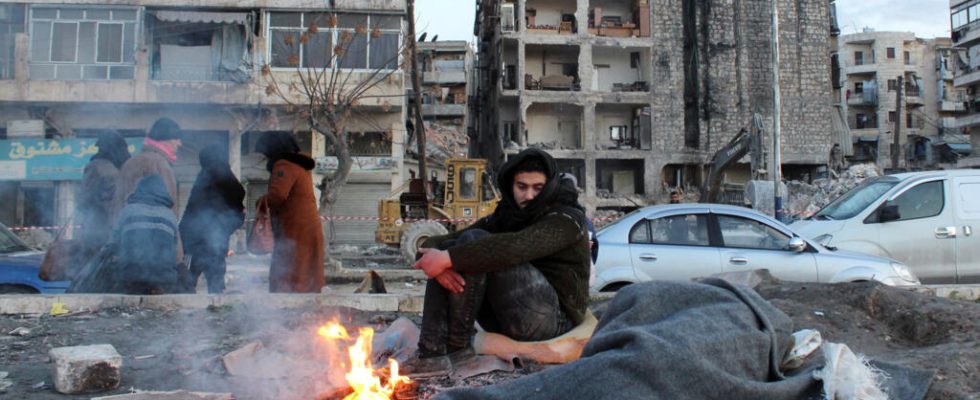On the Syrian-Turkish border, the crossing point through which humanitarian aid sent by the UN passes has been temporarily closed, while in New York, negotiations around its extension have resumed. It is through this that 85% of the aid that is distributed to 2.7 million Syrians in the Idlib region passes each month.
This is the last episode of this soap opera cynical which puts the United Nations in suspense every six months, and where everyone still wonders if Moscow will dare to veto the renewal of the passage of humanitarian aid cross-border via the point of Bab Al-Hawa.
Faced with opposition from Russia, which insisted on only six months, Switzerland and Brazil proposed a nine-month renewal of the crossing point. A concession made to soften Moscow, since the humanitarian services of the UN were clamoring to extend it by twelve months when the needs have been even greater since then. the earthquakes of last Februaryspecifies our correspondent in New York, Carrie Nooten. Compromise which Russia, a key ally of Damascus, vetoed on Tuesday July 11, preventing its adoption despite 13 votes in favor, and one abstention from China. Moscow presented its own six-month renewal plan, which was rejected because it mentioned the start of the lifting of sanctions against Damascus.
Behind the scenes, diplomats confided that even the regime of Bashar el-Assad was not opposed to the resolution and above all, it would have made it possible not to have to replay this negotiation in the middle of winter, when the situation of Syrian refugees is even more precarious. But this did not prevent Russia from wielding its veto, forcing the interruption of the passage of aid, and the resumption of diplomatic negotiations.
The head of the UN, Antonio Guterres, said he was disappointed with the failure of the Security Council, a feeling shared by the fourteen other members of the Council. He called on the members of the Council ” to redouble their efforts » to enable cross-border assistance to continue.
Read alsoDue to lack of funding, the World Food Program cuts its food aid for Syria
85% of the needs conveyed by this humanitarian passage
The mechanism created in 2014 allows the UN to deliver humanitarian aid to the populations of the rebel areas in northwestern Syria, without authorization from the Syrian government, which regularly denounces a violation of its sovereignty. Initially, it provided for four crossing points, but after years of pressure, in particular from Moscow, an ally of the Syrian regime, only the Bab al-Hawa post had remained operational, and its authorization had been reduced to six months renewable.
” I’humanitarian aid should be based on need, not politics »castigated Floriane Borel, of the organization Human Rights Watch, on Tuesday, denouncing the ” cynical vetoe » of Russia. the UN ” should immediately explore alternative means to ensure Syrians receive enough food, medicine and other aid they desperately need without having to beg Russia or the Syrian president for access »she added.
Despite the expiration of the UN mechanism, two other crossing points are indeed operational, authorized directly by Syrian President Bashar al-Assad after the February earthquakes. But, these two crossing points ” can’t make up for it.” Bab al-Hawa, insisted Tuesday Stéphane Dujarric, spokesman for the Secretary General of the UN. ” 85% of our needs went through the door which was closed today”.
UN says four million people in northwestern Syria, mostly women and children, need humanitarian assistance to survive after years of conflict, economic shocks, disease outbreaks and poverty growing aggravated by devastating earthquakes.
Read alsoSyria sinks further into economic crisis, the pound plunges on the black market
(and with AFP)
